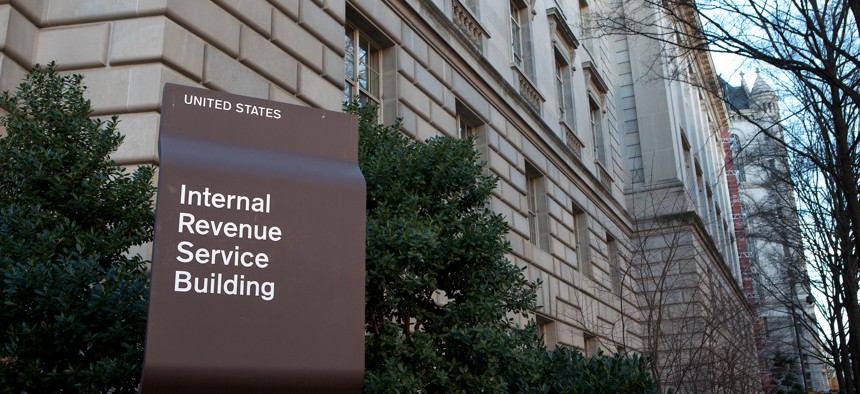What the IRS pullback on donor disclosure requirements means for New York nonprofits

IRS building. Mark Van Scyoc / Shutterstock
The Internal Revenue Service has rolled back requirements that certain nonprofits must provide the federal agency the names and addresses of donors who contribute $5,000 or more to their organization, Bloomberg Tax reports.
Critics fear that the new rules will allow donors to funnel unlimited amounts of so-called “dark money” to tax-exempt political advocacy groups without scrutiny. The latest rule excludes charities but would encompass 501(c)(4) social welfare organizations with broader lobbying powers such as the National Rifle Association and the American Civil Liberties Union.
“The Treasury Department and the IRS seek to balance the IRS’s need for the information for tax administration purposes against the burden and risks associated with reporting of the information,” the rules issued Tuesday read.
States can pursue their own donor reporting requirements if they want to, though implementing new rules may be challenging in light of the logistical and financial challenges presented by the COVID-19 pandemic.
New York state has passed some measures targeted at donor transparency in this year’s budget, though they would not fully circumvent the IRS’s rules. Certain nonprofits that have spent more than $10,000 in communication in support or opposition of legislation will have to file annual financial disclosure reports to the Department of State under the provisions, which give the state agency expanded oversight of nonprofits. The state agency will also be able to publish these financial reports if contributions between charities and political advocacy organizations are “inconsistent with (their) charitable purposes,” though they will not include donor names or addresses.
Gov. Andrew Cuomo proposed a much broader donor disclosure proposal earlier this year that would have functionally required all nonprofits, including charitable groups, to publicize the names of their donors who give more than $5,000. But the proposal was rolled back given the likelihood it wouldn’t survive a court challenge and the fact that many nonprofits feared it would stifle charitable giving and free speech for donors.